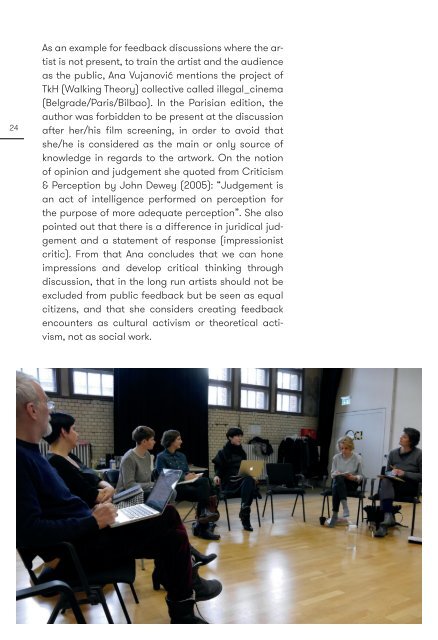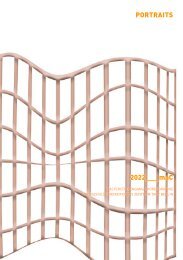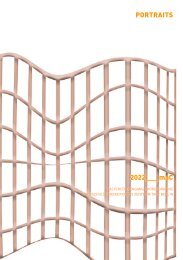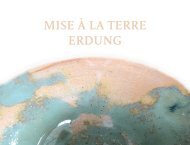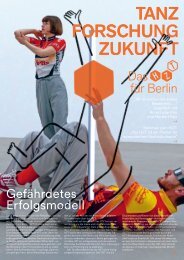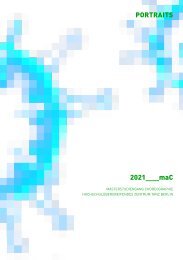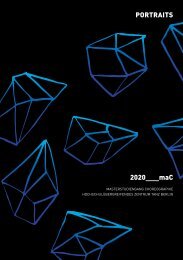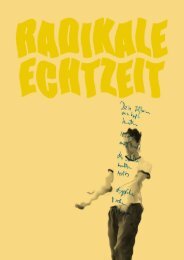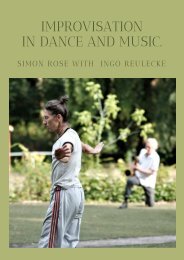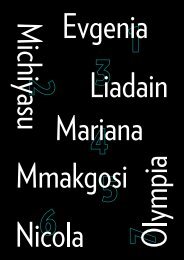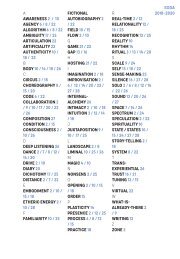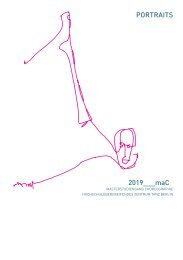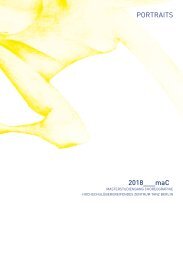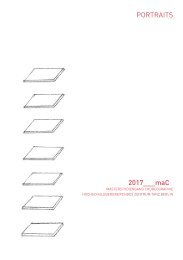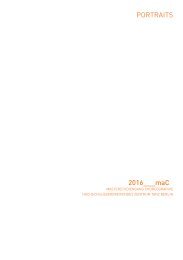Laboratory on Feedback in Artistic Processes 2
In its second edition the "Laboratory on Feedback in Artistic Processes" pays particular focus on “audiences” feedback within performing arts. Feedback is happening everywhere, and everything is feedbackable. But what is the value of public audience feedback? What kind of feedback is needed where? Why do we differentiate between specialist and general public audiences? How can we think beyond helping the artist and making an artwork better? How can it feed the bigger picture by enabling critical, rigorous feedback as a development for all citizens participating in a public event? Can public feedback then begin to shape communities and the wider public sphere? The second “Laboratory on Feedback in Artistic Processes” contained presentations and try-outs of different feedback methods and approaches. The format “Feedback Lab goes Public” in collaboration with Tanztage Berlin 2015 / Sophiensaele and mapping dance berlin /Tanzbüro Berlin offered the opportunity to test feedback methods directly with the artists and audiences of the festival. IMPRINT Text and Editing: Sheena McGrandles, Olive Schellander, Eva-Maria Hoerster Layout: David Eckelmann Editor: HZT Berlin, 2015
In its second edition the "Laboratory on Feedback in Artistic Processes" pays particular focus on “audiences” feedback within performing arts. Feedback is happening everywhere, and everything is feedbackable. But what is the value of public audience feedback? What kind of feedback is needed where? Why do we differentiate between specialist and general public audiences? How can we think beyond helping the artist and making an artwork better? How can it feed the bigger picture by enabling critical, rigorous feedback as a development for all citizens participating in a public event? Can public feedback then begin to shape communities and the wider public sphere?
The second “Laboratory on Feedback in Artistic Processes” contained presentations and try-outs of different feedback methods and approaches. The format “Feedback Lab goes Public” in collaboration with Tanztage Berlin 2015 / Sophiensaele and mapping dance berlin /Tanzbüro Berlin offered the opportunity to test feedback methods directly with the artists and audiences of the festival.
IMPRINT
Text and Editing: Sheena McGrandles, Olive Schellander, Eva-Maria Hoerster
Layout: David Eckelmann
Editor: HZT Berlin, 2015
You also want an ePaper? Increase the reach of your titles
YUMPU automatically turns print PDFs into web optimized ePapers that Google loves.
24<br />
As an example for feedback discussi<strong>on</strong>s where the artist<br />
is not present, to tra<strong>in</strong> the artist and the audience<br />
as the public, Ana Vujanović menti<strong>on</strong>s the project of<br />
TkH (Walk<strong>in</strong>g Theory) collective called illegal_c<strong>in</strong>ema<br />
(Belgrade/Paris/Bilbao). In the Parisian editi<strong>on</strong>, the<br />
author was forbidden to be present at the discussi<strong>on</strong><br />
after her/his film screen<strong>in</strong>g, <strong>in</strong> order to avoid that<br />
she/he is c<strong>on</strong>sidered as the ma<strong>in</strong> or <strong>on</strong>ly source of<br />
knowledge <strong>in</strong> regards to the artwork. On the noti<strong>on</strong><br />
of op<strong>in</strong>i<strong>on</strong> and judgement she quoted from Criticism<br />
& Percepti<strong>on</strong> by John Dewey (2005): “Judgement is<br />
an act of <strong>in</strong>telligence performed <strong>on</strong> percepti<strong>on</strong> for<br />
the purpose of more adequate percepti<strong>on</strong>”. She also<br />
po<strong>in</strong>ted out that there is a difference <strong>in</strong> juridical judgement<br />
and a statement of resp<strong>on</strong>se (impressi<strong>on</strong>ist<br />
critic). From that Ana c<strong>on</strong>cludes that we can h<strong>on</strong>e<br />
impressi<strong>on</strong>s and develop critical th<strong>in</strong>k<strong>in</strong>g through<br />
discussi<strong>on</strong>, that <strong>in</strong> the l<strong>on</strong>g run artists should not be<br />
excluded from public feedback but be seen as equal<br />
citizens, and that she c<strong>on</strong>siders creat<strong>in</strong>g feedback<br />
encounters as cultural activism or theoretical activism,<br />
not as social work.


